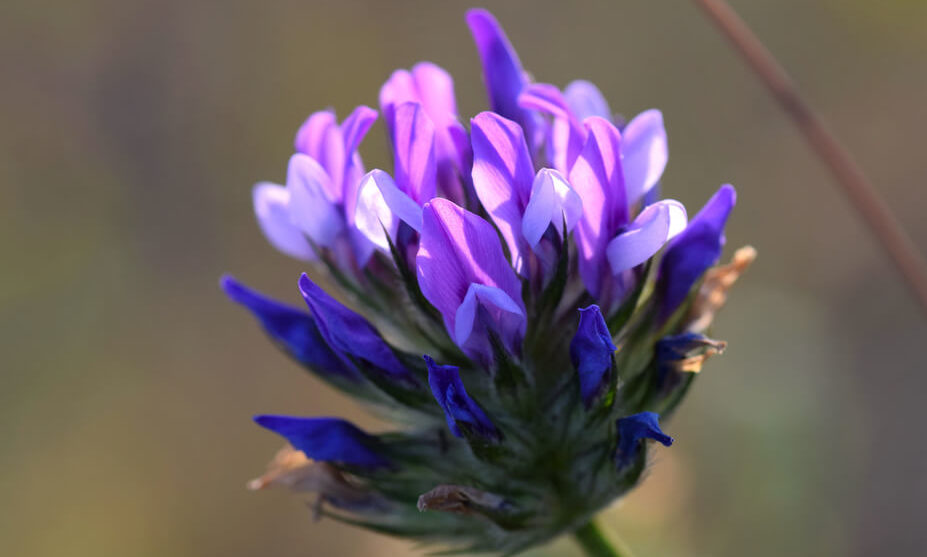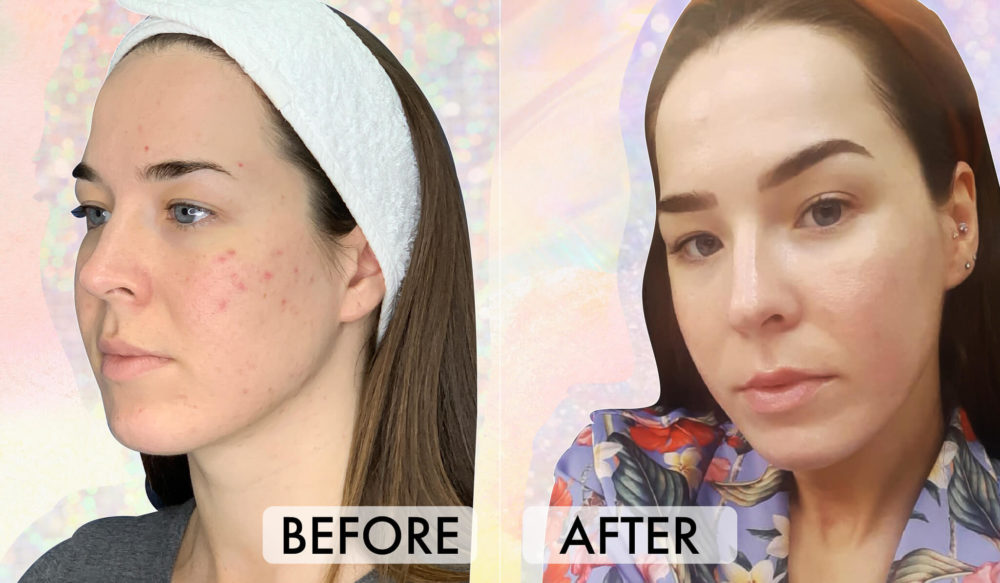Bakuchiol Is The Natural Alternative To Retinol, And It's Amazing
 via Giphy
via Giphy
It’s pretty much impossible to escape the hype around retinol. Though it’s been a dermatologist-fave since the 80s, the ingredient is everywhere now, and brands are launching their own formulations at record pace. Drunk Elephant has gifted us their award-winning A-Passioni™ Retinol Cream, $74, Sunday Riley introduced their A+ High-Dose Retinol Serum, $85, and Pestle & Mortar hit shelves with their Superstar Retinoid Night Oil, $104.
Here’s the thing… Retinol has been scientifically proven to work repeatedly, but it does come with a couple of drawbacks.
“Traditionally, vitamin A-derived retinol products are highly aggressive and can be abrasive with side effects. Irritation, red, raw, and flaky skin are the most common dermal disasters it can bring along with its positive benefits,” notes Dr. Ava Shamban, a board-certified dermatologist and founder of Skinfive by Ava MD Clinics. “Traditional retinol-based products also come with a high sun sensitivity, so those products are not recommended for daytime use.”
In other words, despite its many benefits – and we’d never discount them – not everyone can tolerate regular use of such a potent ingredient. That’s where retinol alternatives come into play. There aren’t a ton out there, but bakuchiol is one that’s got people super excited for how similar it is to the real deal. If you’re wondering how the hell you pronounce Bakuchiol, it sounds like bae-cook-e-ol.
What is Bakuchiol?
 Source: Simone Morris/ Shutterstock
Source: Simone Morris/ Shutterstock
Bakuchiol is a powerful antioxidant that’s found in the seeds and leaves of a medicinal plant called Psoralea Corylifolia. Scientific studies – including a 2018 double-blind comparison between retinol and bakuchiol – have shown that bakuchiol’s effects on the skin are very similar to the effects of retinol.
“Bakuchiol helps prevent fine lines and wrinkles, helps with pigmentation, elasticity, and firmness. It has both anti-inflammatory and antioxidant properties. Also, prolonged use has shown to decrease roughness and dryness,” says Dr. Debra Jaliman, a board-certified dermatologist and author of Skin Rules: Trade Secrets from a Top New York Dermatologist.
She adds, “Dry, oily, combination, normal, and even those with sensitive skin can benefit from bakuchiol. It is a naturally occurring ingredient which makes it good for all skin types.”
Posts You'll Love:
Are There Any Drawbacks to Bakuchiol?
It almost sounds too good to be true, right? A retinol alternative that’s all-natural and doesn’t come with any of the unpleasant side effects. But it’s not too good to be true! Both the derms we talked to say there aren’t any major drawbacks to using bakuchiol, except for the fact that it isn’t quite as potent as true retinol.
“You can use bakuchiol without any harsh side effects. It’s even safe to use while out in the sun because, unlike retinol, bakuchiol will not make you sun sensitive,” says Dr. Jaliman. “However, the truth is that no ‘natural’ retinol will give you the results of a commercial retinol.”
She notes that if your skin tolerates retinol then there’s really no reason to stop using it. However, if your skin reacts strongly, or if you simply prefer to use something gentler, then bakuchiol could be your new BFF.
Dermatologist-Approved Bakuchiol Products:

Whish Restoring Face Oil, $58, is a great serum to try, says Dr. Jaliman. In addition to bakuchiol, it contains loads of natural ingredients that she loves, including macadamia ternifolia seed oil, olive fruit oil, organic starflower oil, black currant seed oil, apricot kernel oil, organic evening primrose oil, organic rosehip oil, and organic argan oil.
Dr. Jaliman also recommends Biossance Squalane + Phyto-Retinol Serum, $78. “Besides the Bakuchiol it also contains squalane, which is extremely moisturizing and keeps skin hydrated. Its molecular makeup is very similar to our own skin’s cell membrane, and this allows it to absorb rapidly.”
OleHenricksen Glow Cycle Retin-ALT Sleeping Creme, $55, makes bakuchiol the star in this night cream. It also contains edelweiss stem cell to improve firmness and fine lines, glycolic and lactic acids to gently resurface the skin, and botanical extracts to soften and nourish.
If you want to give bakuchiol a go, Dr. Shamban recommends incorporating it into your nighttime routine versus daytime. “Our skin is best able to absorb topical treatment during this period and the benefits of DNA repair is boosted,” she says. “With bakuchiol, night is right.”
Let us know in the comments if you’ve tried retinol before and had a reaction. Will you be trying bakuchiol?
Disclaimer: Every product we review has been independently selected and tested without bias by our editorial team. We never take payment to review products, however, some brands allow affiliate links, so we may earn a commission if you purchase a product by clicking on one of our links.























Leave a comment